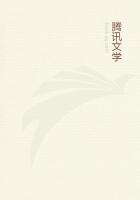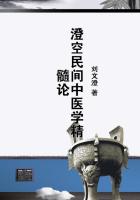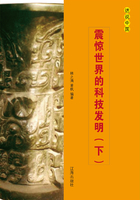There was no conversation. People do not talk when they are cold, and wretched, and sleepy. We nodded in the saddle, at times, and woke up with a start to find that the procession had disappeared in the gloom. Then there was energy and attention to business until its dusky outlines came in sight again. Occasionally the order was passed in a low voice down the line: "Close up -- close up! Bedouins lurk here, every where!" What an exquisite shudder it sent shivering along one's spine!
We reached the famous river before four o'clock, and the night was so black that we could have ridden into it without seeing it. Some of us were in an unhappy frame of mind. We waited and waited for daylight, but it did not come. Finally we went away in the dark and slept an hour on the ground, in the bushes, and caught cold. It was a costly nap, on that account, but otherwise it was a paying investment because it brought unconsciousness of the dreary minutes and put us in a somewhat fitter mood for a first glimpse of the sacred river.
With the first suspicion of dawn, every pilgrim took off his clothes and waded into the dark torrent, singing "On Jordan's stormy banks I stand, And cast a wistful eye To Canaan's fair and happy land, Where my possessions lie." But they did not sing long. The water was so fearfully cold that they were obliged to stop singing and scamper out again. Then they stood on the bank shivering, and so chagrined and so grieved, that they merited holiest compassion.
Because another dream, another cherished hope, had failed. They had promised themselves all along that they would cross the Jordan where the Israelites crossed it when they entered Canaan from their long pilgrimage in the desert.
They would cross where the twelve stones were placed in memory of that great event. While they did it they would picture to themselves that vast army of pilgrims marching through the cloven waters, bearing the hallowed ark of the covenant and shouting hosannahs, and singing songs of thanksgiving and praise. Each had promised himself that he would be the first to cross.
They were at the goal of their hopes at last, but the current was too swift, the water was too cold!
It was then that Jack did them a service. With that engaging recklessness of consequences which is natural to youth, and so proper and so seemly, as well, he went and led the way across the Jordan, and all was happiness again. Every individual waded over, then, and stood upon the further bank.
The water was not quite breast deep, any where. If it had been more, we could hardly have accomplished the feat, for the strong current would have swept us down the stream, and we would have been exhausted and drowned before reaching a place where we could make a landing. The main object compassed, the drooping, miserable party sat down to wait for the sun again, for all wanted to see the water as well as feel it. But it was too cold a pastime. Some cans were filled from the holy river, some canes cut from its banks, and then we mounted and rode reluctantly away to keep from freezing to death. So we saw the Jordan very dimly. The thickets of bushes that bordered its banks threw their shadows across its shallow, turbulent waters ("stormy," the hymn makes them, which is rather a complimentary stretch of fancy,) and we could not judge of the width of the stream by the eye.
We knew by our wading experience, however, that many streets in America are double as wide as the Jordan.
Daylight came, soon after we got under way, and in the course of an hour or two we reached the Dead Sea. Nothing grows in the flat, burning desert around it but weeds and the Dead Sea apple the poets say is beautiful to the eye, but crumbles to ashes and dust when you break it. Such as we found were not handsome, but they were bitter to the taste. They yielded no dust. It was because they were not ripe, perhaps.
The desert and the barren hills gleam painfully in the sun, around the Dead Sea, and there is no pleasant thing or living creature upon it or about its borders to cheer the eye. It is a scorching, arid, repulsive solitude. A silence broods over the scene that is depressing to the spirits.
It makes one think of funerals and death.
The Dead Sea is small. Its waters are very clear, and it has a pebbly bottom and is shallow for some distance out from the shores. It yields quantities of asphaltum; fragments of it lie all about its banks; this stuff gives the place something of an unpleasant smell.
All our reading had taught us to expect that the first plunge into the Dead Sea would be attended with distressing results -- our bodies would feel as if they were suddenly pierced by millions of red-hot needles; the dreadful smarting would continue for hours; we might even look to be blistered from head to foot, and suffer miserably for many days. We were disappointed.
Our eight sprang in at the same time that another party of pilgrims did, and nobody screamed once. None of them ever did complain of any thing more than a slight pricking sensation in places where their skin was abraded, and then only for a short time. My face smarted for a couple of hours, but it was partly because I got it badly sun-burned while I was bathing, and staid in so long that it became plastered over with salt.
No, the water did not blister us; it did not cover us with a slimy ooze and confer upon us an atrocious fragrance; it was not very slimy; and Icould not discover that we smelt really any worse than we have always smelt since we have been in Palestine. It was only a different kind of smell, but not conspicuous on that account, because we have a great deal of variety in that respect. We didn't smell, there on the Jordan, the same as we do in Jerusalem; and we don't smell in Jerusalem just as we did in Nazareth, or Tiberias, or Cesarea Philippi, or any of those other ruinous ancient towns in Galilee. No, we change all the time, and generally for the worse.
We do our own washing.

